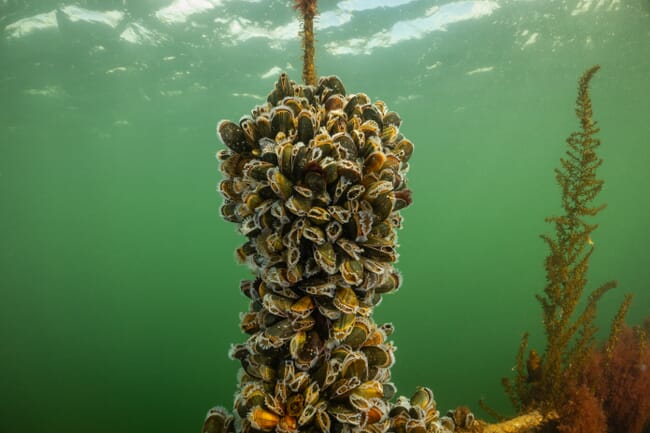
© Shutterstock
Through the report, BIM aims to provide baseline data on the sustainability of the salmon, mussel, and oyster farming sectors of Ireland's aquaculture industry. The report analyses farming practices through four key lenses - environmental, economic, social, and innovation.
Dr Ronan Cooney, author of the report, commented on his hopes that the publication will help policymakers and industry stakeholders in the forming of key decisions, providing data for use in the development of sustainability plans.
"BIM has developed this report as tool that industry can use to assess and communicate their sustainability performance and look at ways to improve and progress, ensuring it is well placed to meet future production demands," Cooney said, in a press release.
The report, which uses data collected from 2017 to 2019 as a baseline, suggests that aquaculture can be a resource efficient method of food production, especially concerning low-input animals such as oysters and mussels.
In addition to production analysis, Cooney also highlights social challenges faced by the industry today: "Challenges identified include an ageing worker population with low levels of recruitment and gender diversity. However the sector has embraced innovation to a high level and has adopted new forms of organisation and process controls," he explains.
To access the full report, visit here.




